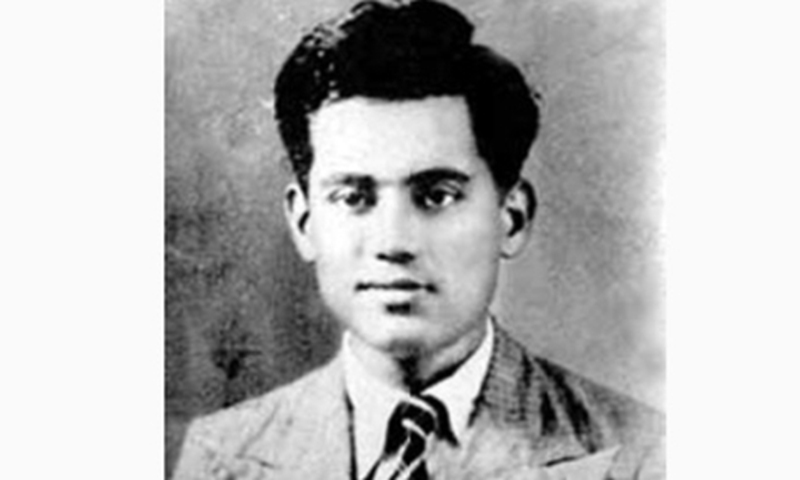Indian doctor working in wartime China remembered as Chinese and Indian students calling for renewed friendship
By Hu Yuwei Source: Global Times Published: 2020/10/12 0:48:21

Undated file photo shows the portrait of Dr. Dwarkanath Kotnis. Photo: Xinhua
Chinese and Indian students commemorated the 110th anniversary of the birth of the Indian physician Dwarkanath Kotnis, or Ke Dihua in Chinese, on Saturday, calling for a renewed bond of friendship amid the current border conflicts and strained diplomatic ties.
Ke Dihua is a household name in China. His full name was Dwarkanath Kotnis, one of the five Indian physicians sent to China to provide medical assistance during World War II. He never made it home again.
The Chinese People's Association for Friendship with Foreign Countries and Centre for South Asian Studies, Peking University, launched an online commemorative activity on Saturday, the 110th birthday of Kotnis - "a good friend of Chinese." The activity attracted about 300 participants, including representatives from Chinese Embassy in India and college students from both countries.
Students from 14 universities in China and India created 54 short videos, to promote the spirit of Doctors Without Borders (MSF) in Chinese, Hindi and other languages. Ten of the videos won awards
"I think through mutual understanding, cultural exchange and exploring our relations in ancient times, we will come to an understanding on how we had so many common aspects in the past even before we established diplomatic relations," Archie Bisht, an award-winning Indian student at Doon University, Uttrakhand, India, told the Global Times on Sunday. "This will bring us closer to each other and the relation we had established during the Tang Dynasty. As Trans-Himalayan neighbors, we should work together to make Asia strong as we are considered as two strong pillars of Asia."
The current mutual suspicion and misunderstanding between the Chinese and Indian people is largely due to the lack of communication and mutual understanding between the two sides. Chinese and Indian university students learning each other's languages shoulder the important task of telling the story of China-India friendship, said Jiang Jingkui, a professor of Indian languages from Peking University.
Both China and India are ancient civilizations in Asia, and crucial neighbors. During the 2,000-year history of China-India exchanges, peace and friendship have always been the mainstream and contradictions are only temporary, said Lin Songtian, the head of Chinese People's Association for Friendship with Foreign Countries. "It is normal for neighbors to have occasional frictions. The key is to calm down and sit together to find a solution, just like family members."
"The Chinese and Indian people have to be vigilant to all outside powers that attempt to instigate and mislead China-India relations. We believe the governments and people of the two countries have the wisdom and ability to properly handle differences and resolve conflicts to bring more benefit to the 2.7 billion people of the two countries," said Lin.
Students appreciated the memorial for enabling more people to learn about how Dr. Kotnis - a revolutionary, internationalist, a good human - served as a bridge between India and China, Vikash Kumar Singh, an Indian linguist studying in China, told the Global Times. It is valuable to remind people of the past good relations between the two countries, he said.
"I think people like us, have to come forward and make people of both countries realize that conflict is not the solution to the ongoing problem. Neither country can bear the consequences. We have more space for cooperation than for fighting," Singh suggested.
"Today's program was a small initiative, and we can see, despite of tensions, many people from both the countries come forward and participated in this program," said Singh, calling for more activities that "send a positive message to both governments."
Posted in: CHINA-INDIA